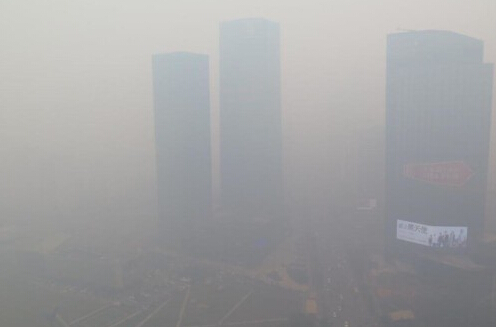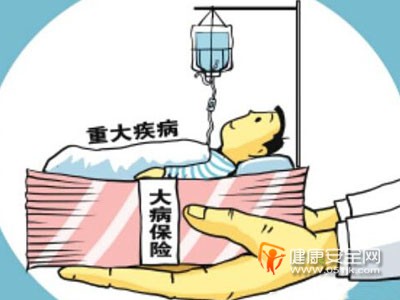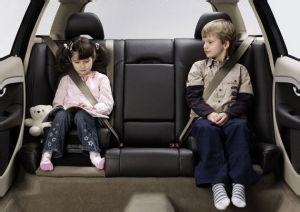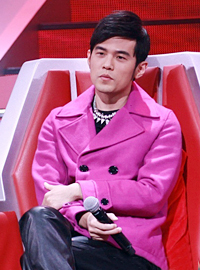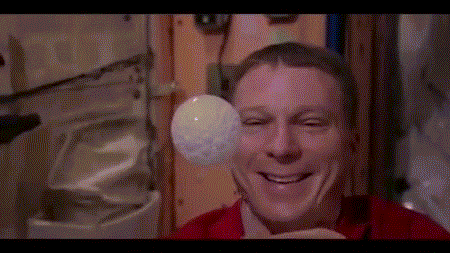来源:有道考研/建昆老师
Section I use of English
完形填空
Could a hug a day keep the doctor away? The answer may be a resounding “yes!” Besides helping you feel close and connected to people you care about, it turns out that hugs can bring a host of health benefits to your body and mind。 Believe it or not, a warm embrace might even help you avoid getting sick this winter。
In a recent study involving over 400 healthy adults, researchers from Carnegie Mellon University in pennsylvania examined the effects of perceived social support and the receipt of hugs on the participants‘ susceptibility to developing the common cold after being exposed to the virus。 People who perceived greater social support were less likely to come down with a cold, and the researchers calculated that the stress-buffering effects of hugging explained about32 percent of that beneficial effect。 Even among those who got a cold, the ones who felt greater social support and received more frequent hugs had less severe symptoms。
“Hugging protects people who are under stress from the increased risk for colds that‘s usually associated with stress,” notes study lead author Sheldon Cohen, a professor of psychology at Carnegie Mellon University in Pennsylvania。 Hugging “is a marker of intimacy and helps generate the feeling that others are there to help in the face of adversity。”
Some experts attribute the stress-reducing, health-related benefits of hugging to the release of oxytocin, often called “the bonding hormone” because it promotes attachment in relationships, including between mothers and their newborn babies。 Oxytocin is made primarily in the hypothalamus in the brain, and some of it is released into the bloodstream through the pituitary gland。 But some of it remains in the brain, where it influences mood, behavior and physiology。
- A。 besides B。 unlike C。 throughout D。 despite
- A。 equal B。 restricted C。 connected D。 inferior
- A。 view B。 host C。 lesson D。 choice
- A。 avoid B.forget C。 recall D。 keep
- A。 collecting B。 affecting C。 guiding D。 involving
- A 。 on B。 in C。 at D。 of
- A。 devoted B。 attracted C。 lost D。 exposed
- A。 along B。 across C。 down D。 out
- A。 imagined B。 denied C。 doubted D。 calculated
- A。 served B。 restored C。 explained D。 required
- A。 thus B。 still C。 rather D。 even
- A.defeats B。 symptoms C。 errors D。 tests
- A。 highlighted B。 increased C。 controlled D。 minimized
- A。 presented B。 equipped C。 associated D。 compared
15.A。 assess B。 generate C。 moderate D。 record
15.A。 in the name of B。 in the form of C。 in the face of D。 in the way of
17.A。 attribute B。 commit C。 transfer D。 return
18.A。 unless B。 because C。 though D。 until
19.A。 remains B。 emerges C。 vanishes D。 decreases
20.A。 experiences B。 combines C。 justifies D。 influences
Section II Reading Comprehension
Text1
First two hours, now three hours — this is how far in advance authorities are recommending people show up to catch a domestic flight, at least at some major U.S。 airports with increasingly massive security lines。
Americans are willing to tolerate time-consuming security protocols in return for increased safety。 The crash of EgyptAir Flight 804, which terrorists may have downed over the Mediterranean Sea, provides another tragic reminder of why。 But demanding too much of air travelers or providing too little security in return undermines public support for the process。 And it should: Wasted time is a drag on Americans‘ economic and private lives, not to mention infuriating。
Last year, the Transportation Security Administration(TSA) found in a secret check that undercover investigators were able to sneak weapons — both fake and real — past airport security nearly every time they tried。 Enhanced security measures since then, combined with a rise in airline travel due to the improving economy and low oil prices, have resulted in long waits at major airports such as Chicago‘s O’Hare International。 It is not yet clear how much more effective airline security has become — but the lines are obvious。
Part of the issue is that the government did not anticipate the steep increase in airline travel, so the TSA is now rushing to get new screeners on the line。 Part of the issue is that airports have only so much room for screening lanes。 Another factor may be that more people are trying to overpack their carry-on bags to avoid checked-baggage fees, though the airlines strongly dispute this。
There is one step the TSA could take that would not require remodeling airports or rushing to hire: Enroll more people in the PreCheck program。 PreCheck is supposed to be a win-win for travelers and the TSA。 Passengers who pass a background check are eligible to use expedited screening lanes。 This allows the TSA to focus on travelers who are higher risk, saving time for everyone involved。 TSA wants to enroll 25 million people in PreCheck。
It has not gotten anywhere close to that, and one big reason is sticker shock: Passengers must pay $85 every five years to process their background checks。 Since the beginning, this price tag has been PreCheck‘s fatal flaw。 Upcoming reforms might bring the price to a more reasonable level。 But Congress should look into doing so directly, by helping to finance PreCheck enrollment or to cut costs in other ways。
The TSA cannot continue diverting resources into underused PreCheck lanes while most of the traveling public suffers in unnecessary lines。 It is long past time to make the program work。
- The crash of EgyptAir Flight 804 is mentioned to
[A] explain American’s tolerance of current security checks。
[B] stress the urgency to strengthen security worldwide。
[C] highlight the necessity of upgrading major U.S。 airports。
[D] emphasize the importance of privacy protection。
- Which of the following contributes to long waits at major airports?
[A] New restrictions on carry-on bags。
[B] The declining efficiency of the TSA。
[C] An increase in the number of travellers。
[D] Frequent unexpected secret checks。
- The word “expedited” (Liner 4, Para。 5) is closet in meaning to
[A] quieter。
[B] cheaper。
[C] wider。
[D] faster。
- One problem with the PreCheck program is
[A] a dramatic reduction of its scale。
[B] its wrongly-directed implementation。
[C] the government’s reluctance to back it。
[D] an unreasonable price for enrollment。
- Which of the following would be the best for the text?
[A] Less Screening for More Safety
[B] PreCheck – a Belated Solution
[C] Getting Stuck in Security Lines
[D] Underused PreCheck Lanes
- B explains Americans’ tolerance of current security worldwide。
- C an increase in the number of travelers
- D faster
- D an unreasonable price for enrollment
- A less Screening for More Safety
Text2
“The ancient Hawaiians were astronomers,” wrote Queen Liliuokalani, Hawaii‘s last reigning monarch, in 1897。 Star watchers were among the most esteemed members of Hawaiian society。 Sadly, all is not well with astronomy in Hawaii today。 Protests have erupted over construction of the Thirty Meter Telescope (TMT), a giant observatory that promises to revolutionize humanity’s view of the cosmos。
At issue is the TMT‘s planned location on Mauna Kea, a dormant volcano worshiped by some Hawaiians as the piko, that connects the Hawaiian Islands to the heavens。 But Mauna Kea is also home to some of the world’s most powerful telescopes。 Rested in the Pacific Ocean, Mauna Kea‘s peak rises above the bulk of our planet’s dense atmosphere, where conditions allow telescopes to obtain images of unsurpassed clarity。
Opposition to telescopes on Mauna Kea is nothing new。 A small but vocal group of Hawaiians and environmentalists have long viewed their presence as disrespect far sacred land and a painful reminder of the occupation of what was once a sovereign nation。
Some blame for the current controversy belongs to astronomers。 In their eagerness to build bigger telescopes, they forgot that science is not the only way of understanding the world。 They did not always prioritize the protection of Mauna Kea‘s fragile ecosystems or its holiness to the islands’ inhabitants。 Hawaiian culture is not a relic of the past; it is a living culture undergoing a renaissance today。
Yet science has a cultural history, too, with roots going back to the dawn of civilization。 The same curiosity to find what lies beyond the horizon that first brought early Polynesians to Hawaii‘s shores inspires astronomers today to explore the heavens。 Calls to disassemble all telescopes on Mauna Kea or to ban future development there ignore the reality that astronomy and Hawaiian culture both seek to answer big questions about who we are, where we come from and where we are going。 Perhaps that is why we explore the starry skies, as if answering a primal calling to know ourselves and our true ancestral homes。
The astronomy community is making compromises to change its use of Mauna Kea。 The TMT site was chosen to minimize the telescope’s visibility around the island and to avoid archaeological and environmental impact。 To limit the number of telescopes on Mauna Kea, old ones will be removed at the end of their lifetimes and their sites returned to a natural state。 There is no reason why everyone cannot be welcomed on Mauna Kea to embrace their cultural heritage and to study the stars。
- Queen Liliuokalani’s remark in Paragraph 1 indicates
[A] her conservative view on the historical role of astronomy。
[B] the importance of astronomy in ancient Hawaiian society。
[C]the regrettable decline of astronomy in ancient times。
[D] her appreciation of star watchers’ feats in her time。
- Mauna Kea is deemed as an ideal astronomical site due to
[A] its geographical features。
[B] its protective surroundings。
[C] its religious implications。
[D] its existing infrastructure。
- The construction of the TMT is opposed by some locals partly because
[A] it may risk ruining their intellectual life。
[B] it reminds them of a humiliating history。
[C] their culture will lose a chance of revival。
[D] they fear losing control of Mauna Kea。
- It can be inferred from Paragraph 5 that progress in today’s astronomy
[A] is fulfilling the dreams of ancient Hawaiians。
[B] helps spread Hawaiian culture across the world。
[C] may uncover the origin of Hawaiian culture。
[D] will eventually soften Hawaiians’ hostility。
- The author’s attitude toward choosing Mauna Kea as the TMT site is one of
[A] severe criticism。
[B] passive acceptance。
[C] slight hesitancy。
[D] full approval。
- the importance of astronomy in ancient Hawaii society
- its geographical features
28.it reminds them of humiliating history
29.may uncover the origin of Hawaii culture
30.passive acceptance
Text 3
Robert F.Kennedy once said that a country’s GDP measures “everything except that which makes life worthwhile。” With Britain voting to leave the European Union, and GDP already predicted to slow as a result, it is now a timely moment to assess what he was referring to。
The question of GDP and its usefulness has annoyed policymakers for over half a century。 Many argue that it is a flawed concept。 It measures things that do not matter and miss things that do。 By most recent measures, the UK’s GDP has been the envy of the Western world, with record how unemployment and high growth figures。 If everything was going so so well, then why did over 17million people vote for Brexit, despite the warnings about what it could do to their country’s economic prospects?
A recent annual study of countries and their ability to convert growth into well-being sheds some light on that question。 Across the 163 countries measured, the UK is one of the poorest performances in ensuring that economic growth is translated into meaningful improvement for its citizens。 Rather than just focusing on GDP, over 40 different sets of criteria from health, education and civil society engagement have been measured to get a more rounded assessment of how countries are performing。
While all these countries face their own challenges, there are a number of consistent themes。 Yes, there has been a budding economic recovery since the 2008 global crash, but in key indicators in areas such as health and education, major economies have continued to decline。 Yet this isn’t the case with all countries。 Some relatively poor European countries have seen huge improvements across measures including civil society, income equality and the environment。
This is a lesson that rich countries can learn: When GDP is no longer regarded as the sole measure of a country’s success, the world looks very different。
So, what Kennedy was referring to was that while GDP has been the most common method for measuring the economic activity of nations, as a measure, it is no longer enough。 It does not include important factors such as environmental equality or education outcomes-all things that contribute to a person’s sense of well-being。
The sharp hit to growth predicted around the world and in the UK could lead to a decline in the everyday services we depend on for well-being and for growth。 But policymaker who refocus efforts on improving well-being rather than simply worrying about GDP figures could avoid the forecasted doom and may even see progress。
- Robert F。 Kennedy is cited because he
[A]praised the UK for its GDP。
[B]identified GDP with happiness。
[C]misinterpreted the role of GDP。
[D]had a low opinion of GDP。
- It can be inferred from Paragraph 2 that
[A]the UK is reluctant to remold its economic pattern。
[B]the UK will contribute less to the world economy。
[C]GDP as the measure of success is widely defied in the UK。
[D]policymakers in the UK are paying less attention to GDP。
- Which of the following is true about the recent annual study?
[A]It excludes GDP as an indicator。
[B]It is sponsored by 163 countries。
[C]Its criteria are questionable。
[D]Its results are enlightening。
- In the last two paragraphs, the author suggests that
[A]the UK is preparing for an economic boom。
[B]high GDP foreshadows an economic decline。
[C]it is essential to consider factors beyond GDP。
[D]it requires caution to handle economic issues。
- Which of the following is the best for the text?
[A]High GDP But Inadequate Well-being, a UK lesson
[B]GDP figures, a Window on Global Economic Health
[C] Robert F。 Kennedy, a Terminator of GDP
[D]Brexit, the UK’s Gateway to Well-being
- D had a low opinion of GDP。
- C GDP as the measure of success is widely defied in the UK。
- D It results are enlightening。
- C It is essential to consider factors beyond GDP。
- A High GDP But Inadequate Well-being, A UK Lesson。
Text 4
In a rare unanimous ruling the US Supreme Court has overturned the corruption conviction of a former Virginia governor, Robert McDonnell。 But it did so while holding its nose at the ethics of his conduct, while included accepting gifts such as a Rolex watch and a Ferrari automobile from a company seeking access to government。
The high court’s decision said the judge in Mr.McDonnell’s trail failed to tell a jury that it must look only at his “official acts”, or the former governor’s decisions on “specific” and “unsettled” issues related to his duties。
Merely helping a gift-giver gain access to other officials, unless done with clear intent to pressure those officials, is not corruption, the justices found。
The court did suggest that accepting favors in return for opening doors is “distasteful” and “nasty”。 But under anti-bribery laws, proof must be made of concrete benefits, such as approval of a contract or regulation。 Simply arranging a meeting, making a phone call, or hosting an event is not an an“official act”。
The court’s ruling is legally sound in defining a kind of favoritism that is not criminal。 Elected leaders must be allowed to help supporters deal with bureaucratic problems without fear of prosecution for bribery。 “The basic compact underlying representative government, wrote Chief Justice John Robert for the court, “assumes that public officials will hear from their constituents and act in their concerns。”
But the ruling reinforces the need for citizens and their elected representatives, not the courts, to ensure equality of access to government。 Officials must not be allowed to play favorites in providing information or in arranging meetings simply because an individual or group provides a campaign donation or a personal gift。 This type of integrity requires well-enforced laws in government transparency, such as records of official meetings, rules on lobbying, and information about each elected leader’s sources of wealth。
Favoritism in official access can fan public perceptions of corruption。 But it is not always corruption Rather officials must avoid double standards, or different types of access for average people and the wealthy。 If connections can be bought, a basic premise of democratic society--that all are equal in treatment by government-is undermined。 Good governance rests on an understanding of the inherent worth of each individual。
The court’s ruling is a step forward in the struggle against both corruption and official favoritism。
- The underlined sentence(Para.1)most probably shows that the court
- avoided defining the extent of McDonnell’s duties。
- made no compromise in convicting McDonnell。
- was contemptuous of McDonnell’s conduct。
- refused to comment on McDonnell’s ethics。
- According to Paragraph 4, an official act is deemed corruptive only if it involves
- Concrete returns for gift-giver。
- Sizable gains in the form of gifts。
- Leaking secrets intentionally。
D.breaking contracts officially。
- The court’s ruling is based on the assumption that public officials are
A 。 Allowed to focus on the concerns of their supporters。
- Qualified to deal independently with bureaucratic issues。
- Justified in addressing the needs of their constituents。
- Exempt from conviction on the charge of favoritism。
- Well-enforced laws in government transparency are needs to
- Awaken the conscience of officials。
- Guarantee fair play in official access。
- Allow for certain kinds of lobbying。
- Inspire hopes in average people。
- The author’s attitude towards the court’s ruling is
- Sarcastic
- Tolerant
- Skeptical
D.supportive
- C was contemptuous of McDonell’s conduct
- A concrete returns for the give-givers
- A allowed to focus on the concerns of their supporters
- B guarantee fair play in official access
- D supportive
Part B
- F Dickens was born in Portsmactch, on Englands…
- E Soon after his father’s release from prison…
- A The first published sketch, “A Dinner at Popular Walk”…
- C Soon after Sketches by Boz appeared a publishing firm…
- G After Pickwick, Dickens plunged into a bleaker world…
Part C Translation
David Graddol concludes that monoglot English graduates face a bleak economic future as qualified multilingual youngsters from other countries are proving to have a comprehensive advantage over their British counterparts in global companies and organizations。 Alongside that, many countries are introducing English into the primary-school curriculum but British schoolchildren and students do not appear to be gaining greater encouragement to achieve fluency in other languages。
If left to themselves, such trends will diminish the relative strength of the English language in international education markets as the demand for educational resources in languages, such as Spanish, Arabic or Mandarin grows and international business process outsourcing in other languages such as Japanese, French and German, spreads。
Section III Writing
- Directions:
You are to write an email to James Cook, a newly-arrived Australia professor, recommending some tourist attraction in your city。 Please give reason for your recommendation。
You should write nearly on the ANSWER SHEET。
Do not sign your own name at the end of the email 。use “Li Ming” instead。
Do not write the address。 (10 points)
- Directions:
Write an essay of 160-200 words based on the following pictures。 In your essay, you should
1) describe the pictures briefly。
2) interpret the meaning, and
3) give your comments。
You should write neatly on the ANSWER SHEET。 (20 points)


























